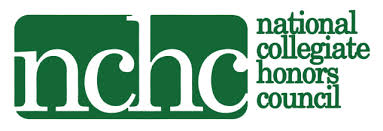Legacy of Wilderness
Legacy - HNRS 1120
Instructor(s): Tomasz Falkowski
Course Description
The Wilderness Act of 1964 defines wilderness as "an area where the earth and its community of life are untrammeled by [humans], where man [sic] himself is a visitor who does not remain.” Navigating the complex relationships between humans and the lands where they live, work, and recreate, this course delves into the historical and ecological context of wilderness areas in the United States, beginning with indigenous relationships to land prior to European settler-colonialism through to present-day debates regarding conservation practices.
The class will begin with an exploration of traditional land management, with a place-based focus on New Mexico, followed by an interrogation of two cultural narratives which helped justify displacement and dispossession of indigenous peoples throughout the Americas: the Myths of the Pristine and the Noble Savage.
As the course progresses, we will critically examine the justifications for, approaches to, and implications of managing wilderness lands through fortress-style conservation using a socioecological lens. This dominant form of conservation, which protects biological diversity and ecological integrity of wilderness areas by excluding humans and restricting their activities, intersects with issues of social justice, indigenous rights, and (as it is increasingly applied worldwide) sustainable global development.
Finally, the course will consider alternative approaches to land management and conservation which attempt to complement the exclusionary wilderness model at a landscape scale to reconcile conservation goals with human needs and other sociocultural relationships to nature. Students will examine successful collaborative initiatives, including extractive reserves, community management, and rematriation/repatriation of indigenous lands.
Students enrolled in this course will examine both scholarly and popular literature related to wilderness and conservation, engage with their classmates through discussion, and observe wilderness areas and alternative land management approaches through field trips. In so doing, students will gain a nuanced understanding of wilderness, interdisciplinary and intercultural competence, and analytical tools for critically evaluate land management.
Texts
- Callicott, J. B., & Nelson, M. P. (1998). The Great New Wilderness Debate. Univ. of Georgia Press.
- Cronon, William. Uncommon Ground: Rethinking the Human Place in Nature. W.W. Norton, 1996.
- Nelson, M. P., & Callicott, J. B. (2008). The wilderness debate rages on: Continuing the great new wilderness debate. University of Georgia Press.
Requirements
Students will be expected to read several excerpts from the peer-reviewed and popular literature; participate in discussions and activities with their peers; write reflection essays that demonstrate their engagement with the materials; and attend several field trips, including a full day field trip to a local wilderness area, which will involve hiking and physical activity in exposed and varied conditions.
About the Instructor(s): Tomasz Falkowski
Tomasz Falkowski is an applied ecologist who has over a decade of experience researching traditional ecological knowledge, agroecology, and ecological restoration in New Mexico and Chiapas, Mexico. In all of his academic work, he explores how socio-ecological management can foster reciprocal relationships to benefit both human and ecological communities.



Social Media
For news, information, prizes and more fun stuff follow us on our social media!
Honors College Resources